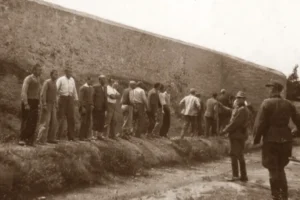The beloved Greek singer-songwriter Dionysis Savvopoulos has died at the age of 81, marking the end of an era in modern Greek music and culture. Known affectionately as “Nionios,” Savvopoulos was more than a composer and lyricist — he was a chronicler of modern Greece, capturing its struggles, dreams, humor, and contradictions through a career spanning six decades.
He passed away on Tuesday, October 21, following cardiac arrest. In his recent autobiography “Γιατί τα χρόνια τρέχουν χύμα” (“Because the Years Run Wild”), Savvopoulos had revealed that he had battled cancer and had undergone surgery to remove half a lung.
Born in Thessaloniki on December 2, 1944, Savvopoulos grew up in a Greece rebuilding itself after war, where politics, poetry, and music intertwined. Moving to Athens as a young man, he began a journey that would redefine Greek songwriting — blending rock, rebetiko, and folk into a deeply personal form of musical expression.
His debut album “To Fortigo” (1966) introduced a new kind of artist — one who sang not only of love and youth but also of alienation, migration, and identity. With “To Perivoli tou Trelou” (1969), he became the voice of a generation. His lyrics married political insight with poetic metaphor, creating songs that were both deeply personal and collectively resonant.
During the turbulent 1970s, albums like “Vromiko Psomi” and “Ballos” reflected the anxieties and aspirations of a society in transition. His music became both a form of resistance and reflection — chronicling an evolving Greece while also questioning its contradictions.
Savvopoulos was never merely a musician; he was a commentator, a satirist, and at times, a philosopher. Through works like “Amnistia ’64” and “O Politieftis”, he dissected post-war traumas and the hypocrisy of political life, combining humor with sharp criticism.
In the 1980s, “Trapezakia Exo” brought urban Greek life to the forefront. Mixing bouzouki with electric guitars, he bridged the old and the new, bringing the Greek street sound into dialogue with modern songwriting. His collaborations with artists, poets, and filmmakers expanded his reach — but his artistic identity remained uniquely his own.
In his autobiography, Savvopoulos reflected on his alter ego, saying:
“What we call ‘Savvopoulos’ doesn’t exist. He’s a role I created over the years — the man with the round glasses and suspenders, who sings, comments, tells stories. I am me. But I often hide inside that other self. Without me, he’d be just thin air.”
Savvopoulos’ legacy extends far beyond his melodies. His songs, sung at protests, cafés, and gatherings across generations, captured what it means to be Greek — to laugh in pain, to find irony in despair, and to keep dreaming despite it all.
For many, he was not simply the soundtrack of Greece but its conscience. His music told the story of a nation in perpetual transformation — with love, with wit, and with an unflinching honesty.












